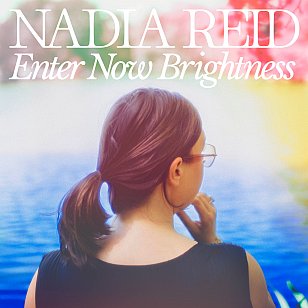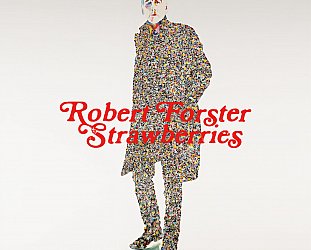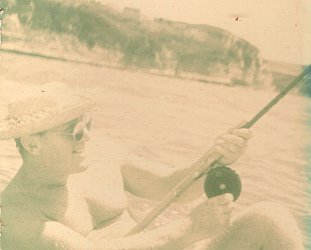Graham Reid | | 1 min read
Cry on Cue

As we have noted in our review of the new Sharon Van Etten album, artists don't have to change.
But most do because . . .
They grow, mature, see more of the world, are exposed to different influences and experiences, their tastes change, they have a partner, children maybe . . .
As George Harrison once observed, in five years he went from Liverpool to standing in the Himalayas.
And so we come to Nadia Reid, formerly a folk singer from tiny Port Chalmers outside Dunedin.
Now a mother of two living in Birmingham, Reid has put much behind her since her 2020 album Out of My Province, not the least the local label “folk singer”.
“I still feel uncomfortable about the word folk and being a folk singer,” she said recently. “It makes me sort of cringe, it’s too confining.”
The scorch of electric guitar, synthesiser and hefty drum thump on Changed/Unchained on this fourth album are indicative of how much her musical palette has broadened.
From the intimacy of the alt.folk of her early career, now she also embraces swelling pop on Second Nature which teasingly opens with acoustic guitar before the rolling verses and memorable chorus puts it in reach of mainstream radio.
Hotel Santa Cruz eases close to escapist, Californian country-rock (“four steps outta here, I'm rollin the clear. I'm only seeking truth and light”) and the penetrating Baby Bright about a suicide and forgiveness (“I don't know why he jumped . . . don't know why you felt that way”) is supported by horns and organ.
Although Reid confidently pushes her range (the devastatingly emotional nakedness of Cry on Cue where she drops into conversational cadences), her country folk origins are still close enough.
The opening ballad Emmanuelle sits atop acoustic guitar and gentle organ, refers to the circle being unbroken (familiar from the Carter Family's country classic) and is an aching song of losing love and a necessary departure.
Reid has said motherhood changed her, but any allusions here are discreet and uncoupled from sentimentality, as on the tightly wound alt.rock of Woman Apart (“I'm grateful for the light that shines . . . right to your heart”)
Enter Now Brightness is an apposite title for this break with her previous work but she toyed with simply calling Nadia Reid, a signifier of her own rebirth.
It could be a delicate tightrope walk between pulling her former followers with her but also growing to embrace other possibilities, however that doesn't seem to be her concern.
She has places to go and someone else to be.
In the final, reflective song Send It Down The Line she sings about the detritus of life and a farewell to “a problem that ain't mine” with the affirmative, unswervingly assertive, “here I am”.
Nadia Reid is in a different here and now, as celebratory as it is hard.
The brightness suits her.
.
You can hear and buy this album at bandcamp here





post a comment